Les Miserables (2013)
Directed by: Tom Hooper
Written by: Alain Boublil, Claude-Michel Schonberg
Starring: Amanda Seyfried, Anne Hathaway, Hugh Jackman, Russell Crowe
LES MISERABLES: in cinemas now
RUNNING TIME: 156 mins
REVIEWED BY: Dr Lenera, Official HCF Critic
France 1815: convict Jean Valjean is released on parole by prison guard Javert after serving a nineteen-year sentence. When he steals silver from a bishop who gives him shelter and the bishop lies so he is released by the authorities, Valjean breaks his parole and vows to start an honest life under a new identity, though Javert swears he will bring the escaped convict to justice. Eight years later, Valjean has become mayor of Montreuil-sur-Mer and owner of a factory where Fantine, one of the workers, is sacked for sending money to her illegitimate daughter and falls into prostitution. When a man believed to be him is arrested, Valjean reveals his identity to the court before promising a dying Fantine that he will look after her daughter, but Javert is still on his trail….
Before I spend much of this review criticising this shatteringly disappointing, horribly directed atrocity, let me just say that, despite writing for a website called Horror Cult Films, I have nothing against the musical genre and actually cannot praise enough the stage production of Victor Hugo’s great novel, where the combination of Hugo’s timeless story of morality, redemption, love and obsession combines with the wonderful music of Claude-Michel Schönberg, Alain Boublil and Jean-Marc Natel, a score which runs the full gamut from tender love ballads to rousing anthems to light-hearted ditties, to create a really powerful and moving experience. Nor am I one of those ‘purists’ who demand that a film version of their favourite stage musical be exactly the same. I do though think I know a bad film when I see one, and yet it’s one that appears to have been praised to the skies and loved by audiences everywhere…..at least at first glance.
This unaccountably favourable reception seems odd initially. Compare the response to Les Miserables to the mediocre reception that greeted the 2004 film version of Andrew Lloyd Webber’s The Phantom Of The Opera, which was also based on a well known book that has been adapted for the screen many times. Now musical fans can argue as to which musical is superior, and I would probably say that the Schonberg, Boublil and Natel production has the edge at least musically, where it’s more diverse and sophisticated, but the differing critical responses to the films seemed to be very odd. I say seemed, because then I realised that Les Miserables is directed by a guy who made a film about a person overcoming a disability and the royal family, two subjects which, combined, are bound to have critics falling over themselves to praise it regardless of how good the film really is, while The Phantom Of The Opera is directed by Joel Schumacher, whose films, while being diverse in nature and subject matter, just don’t appeal to those folk who tell us which films are good and which films aren’t, despite the fact that any one of his films shows more directorial competence in one scene than virtually the whole of Les Miserables.
One must remember of course that the stage version initially received very poor reviews even if it immediately became a hit with the theatre-going public. And actually, there are quite a few people who have not liked the film. As the showing I was at finished, some people clapped, an act which for few minutes made me worried about the human race, and I wondered if I was alone in seeing what a poor piece of cinema in it. However, a quick glance at the IMDB board for the movie revealed that there are plenty of others who share some of the serious issues I had with it. Not all the problems are that serious of course. A good example of this is the way the music has been mucked about with. Songs have been shortened, moved about or slightly changed, in ways that don’t really hamper the film or the story, but don’t improve or significantly alter it either, so what’s the point? Of course if you’ve never seen the stage show this kind of stuff is unnoticeable except the fact that the one new song Suddenly is one of the weakest in the whole thing and I can’t remember a single bit of it. The real problem with the film, and something from which there is little reprieve, is the direction, which is so inept I thought at times Ed Wood was the director [but then it would have been more fun, wouldn’t it?].
Tom Hooper loves close-ups. Close-ups certainly have a place in the cinema, and many directors like John Cassavetes and Yasujiro Ozu have worked wonders with them. However, Hooper has decided that 80% of a musical should be shot with them, which not only means that his film is insufferably cramped and claustrophobic to the point that they could have filmed the whole thing on an empty stage and it would hardly have made a difference, but that most of the songs are shot with the camera constantly close to the singer’s face. I could have stood this for one song, but when I realised Hugh Jackman’s mug was going to be looming out at me so much that I felt like he was trying to kiss me, it soon became unbearable. Song after song is filmed like this, and worse than that, they’re shot handheld with a wide angle lens, so that not only is the camera rarely truly still but faces actually sometimes look distorted. Hooper avoids showing people’s legs so much that I wondered if most of the cast were performing with nothing on their bottom halves, and he doesn’t even feel like is necessary to show more than one singer in the same shot, so much of the film just looks like as if a bunch of people had filmed themselves singing songs, sent them in, and the film had cut them together.
Even with the larger numbers the film mostly refuses to pull back and give us a sense of geography, but then again the sets do look half-completed, as if they’d started building them and then been told: “You may as well stop because we’re not really going to use them anyway”. Take Master Of The House, which should be a lavish, spectacular sequence with great stuff happening all over the place. Here, we mostly focus on various pairs of dancers and the camera just fails to show us a decent view of the whole thing until near the end. Saying that, Les Miserables is an astoundingly ugly film throughout. Some early scenes show us the squalor of the locale, but after that we are hardly allowed to see anything, so arguments that the film is going for a gritty realism just don’t hold water. Bizarrely Javert’s two full songs are filmed with a variety of angles, some of them from a distance, and I will say the transitions which move the story forward in time are well accomplished.
Sadly the horrible technique of ‘shakycam’ [shaking the camera around by someone seemingly having an epileptic fit] is often employed in this film. This idiotic way of filming seems to be working its odious way into every film genre, so now it’s the turn of the musical. Whenever somebody runs, the camera follows him or her and shakes about. The battles in the final third are little more than an incoherent mass due to wobbly camerawork and random cutting. It’s not realistic and doesn’t give you the feeling of being ‘”in” the action because most of us don’t see things at virtually the same time from ten angles and bounce about like Zebedee, and even if we do, whatever happened to actually seeing what is happening. What really saddens me is that few critics have even touched on this, which says to me that this style is becoming the accepted norm, a style whose thinking goes against logic. Something happens in a film, we see it. Surely it’s that simple? Of course there are countless films, even if you ignore the Found Footage kind [where its use is justified], which employ this style more, but as I cringed at and got sore eyes from its use in this particular film, I felt seriously concerned for the future of the cinema.
Of course it’s not entirely bad. How can it be with such a terrific,multi-layered tale and that great music, which sounds terrific with the sound blaring out at you in the cinema? The singing is of a surprisingly high quality – this is no Mamma Mia, that’s for sure – with Ann Hathaway certainly deserving of the praise she is getting. Her rendition of I Dreamed A Dream [Susan who?] is a gut-wrenchingly powerful combination of good singing and downright brilliant acting, and just about survives the useless camera person placing her in the middle of the screen against black and randomly shifting the camera to the left and back even though nothing’s there. For God’s sake, if you’re going to shoot someone singing in close-up in one take DO IT PROPERLY. Hugh Jackman sometimes sounds strained, as if it’s becoming almost too much of an effort, though some may argue that it works for the character, while Russell Crow is a little better than many have said but also seems to struggle and as an actor fails to sell Javert’s final scene, but then many of the great scenes from the novel are botched, often because they are rushed. The sewer pursuit near the end was longer and more detailed on stage, where you would think the opposite, then it was in this film. As for the rest of the cast, Eddie Redmayne reveals a good singing voice but can’t seem to help pulling funny expressions as he sings, while Helena Bonham Carter sounds so much like her character in Sweeney Todd I kept expecting Johnny Depp to show up. Of course what really lit up the film occasionally for me was the always hilarious Sacha Baron Cohen who just rules every scene he is in. He seems to be acting in a really fun film, a film that is different from the one he’s actually in.
Les Miserables should have been terrific, but it’s not, it’s a dreary, stodgy mess sunk by bad decisions and incompetence. There is a small amount of good stuff in it, and the story and music cannot help but compell somewhat, which is why my rating for the film is maybe a little higher than the tone of this review may suggest. I cannot believe more people don’t see the huge problems the film has though, but I suppose it’s not much different from the weird popularity of the abysmal Twilight franchise. I don’t think it will win Best Picture at the Oscars [my vote’s on Lincoln, because of its subject matter], but if it does I may as well give up going to the cinema, because it will mean that just dreadful filmmaking has been rewarded and there will be more of it. God help us. I can some up my overall feeling on Les Miserables by saying that when I watched the stage production I cried once, absolutely weeped buckets another time, and had a lump in my throat on two other occasions. During the film, I couldn’t give a toss. The ending……I just wanted him to get on with it.
Rating: 










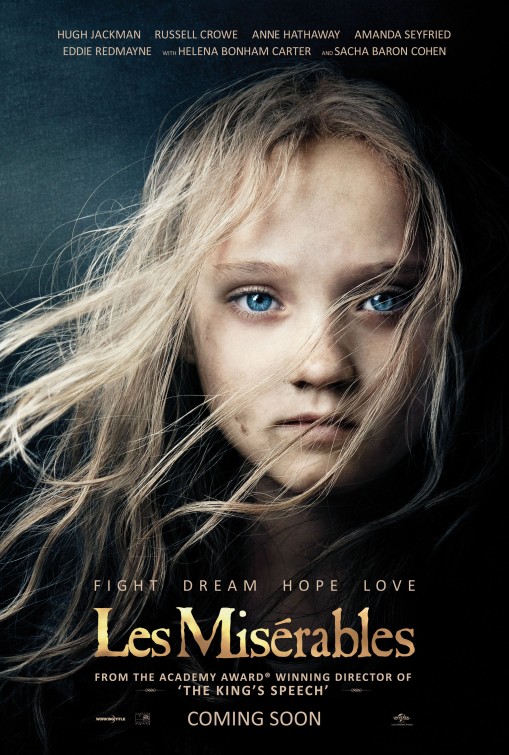
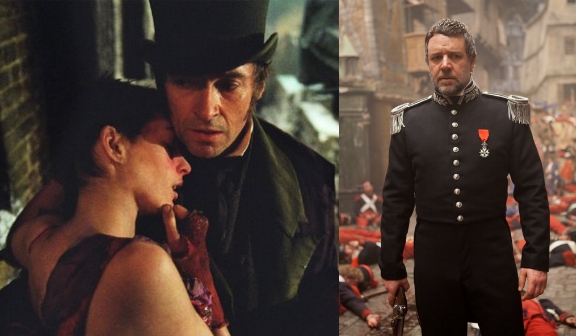
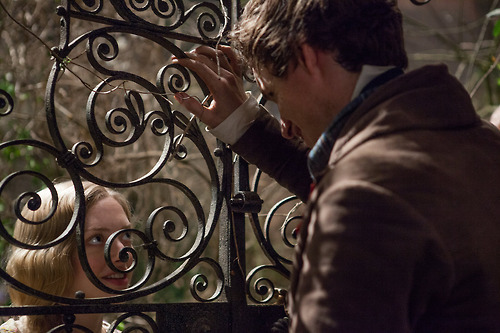
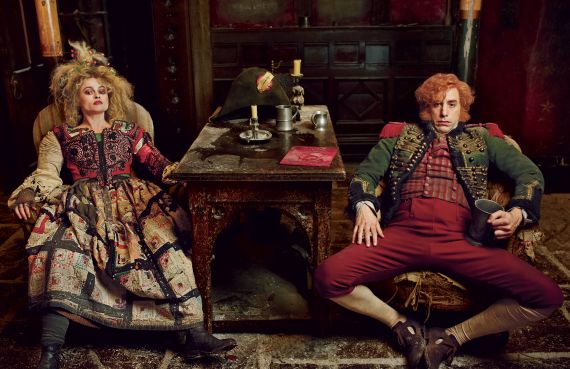

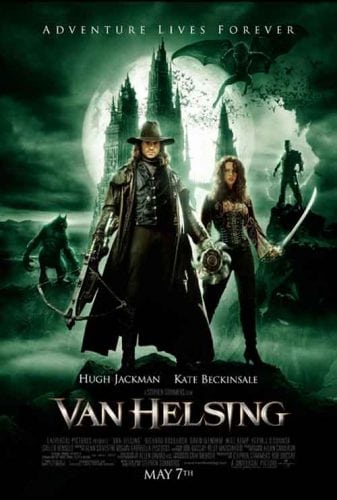
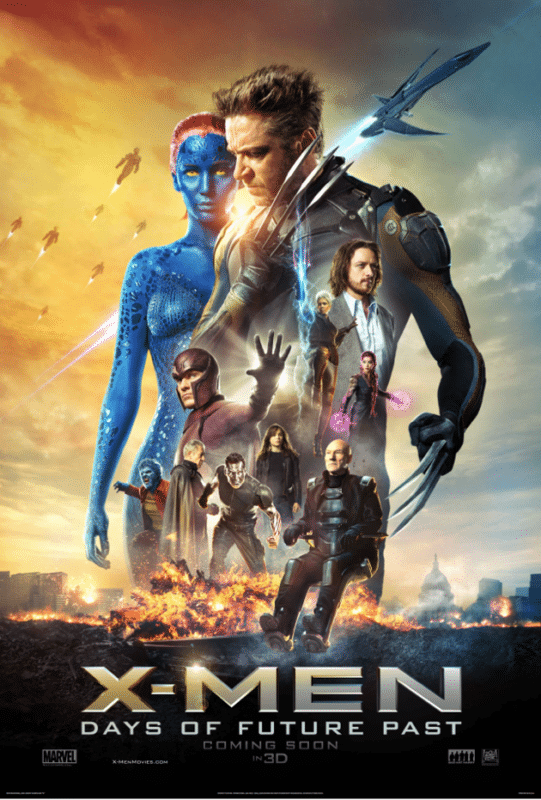
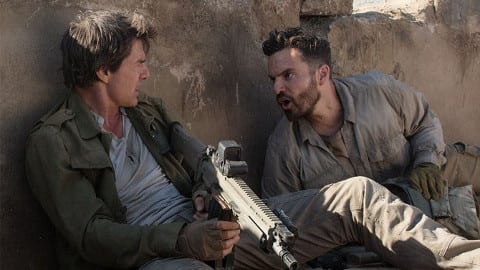
Be the first to comment